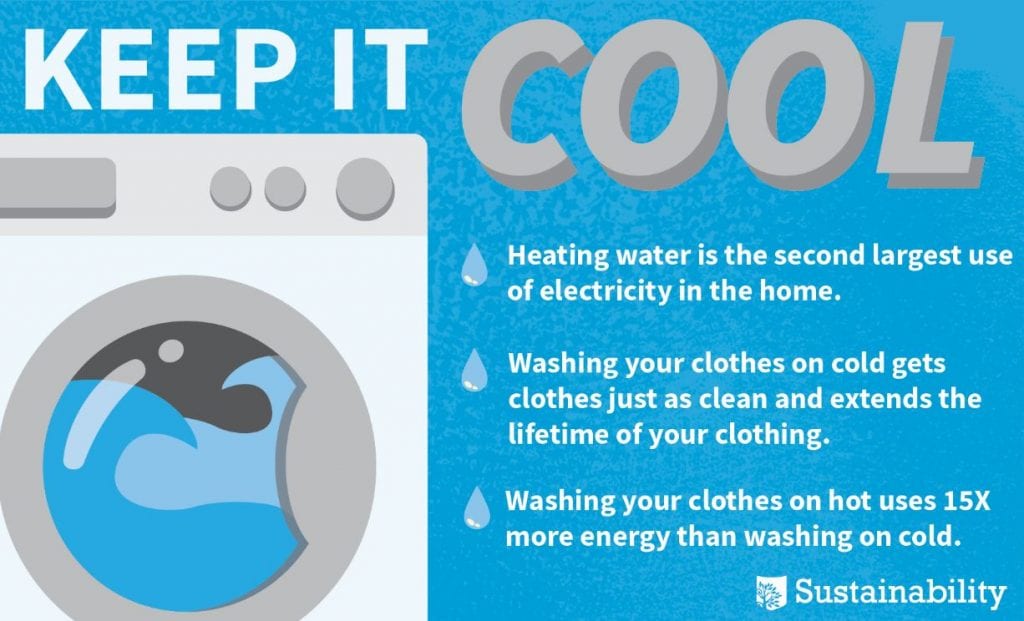The Office of Sustainability is excited to be partnering with student Eco Reps and Residential Life to distribute a new poster to laundry rooms on the South 40 and the Northside Apartments, reminding residents to keep it cool when washing clothes. This communication campaign is part of an initiative to reduce energy usage and greenhouse gas emissions by minimizing hot water usage. Heating water is often the second or third largest use of energy in the home environment, and according to Energy Star, up to 90% of the energy consumed by a washing machine goes to heating water. Washing clothes in cold water can make a significant impact on the amount of energy that is used by residential areas on campus.
The three most important laundry-related things you can do to reduce carbon emissions, conserve water, and save money are:
- Wash your clothes in cold water. Hot water heating is often the second largest energy user in residential settings, and washing machines account for ~20% of total water use and a higher percentage of hot water use.
- Only wash full loads. Washers will use the same amount of energy and nearly the same amount of water regardless of load size.
- Air dry clothing whenever possible. Clothes dryers are commonly the single largest energy using appliance in the residential setting.
The Sierra Club estimates that the average household can mitigate 1,600 pounds of CO2 each year just by using a cold cycle instead of hot. By keeping it cold, the 4,500 students living on the Danforth campus could together reduce over a thousand metric tons of CO2, which is equivalent to taking 214 cars off the road! WashU is committed to reducing its emissions to 1990 levels by the year 2020, and the reduction from cold water washing could account for as much as 4% of our remaining GHG reduction needs to achieve that milestone. When you consider the number of buildings on the Danforth and Medical Campuses, a 4% contribution from something as simple as cold-water washing is a significant contribution.
When washing laundry that is not heavily soiled, cold water meets the mark for cleaning clothes. Many brands have developed special cold-water detergents that are designed to perform better at lower temperatures. These detergents can be found readily at local stores and cost just as much as normal detergent. Cold water is also the gentlest on clothing and will help preserve them from wearing down and losing color.
The Keep it Cool poster is part of the Less is More Toolkit which consists of other stickers and posters that are featured around campus buildings and residential areas, serving as reminders and tips to reduce energy use, conserve water, divert waste, and live more sustainably.
